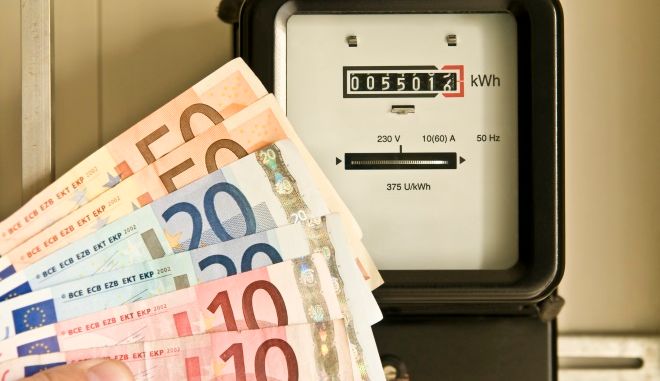In the face of the looming global energy crisis, the rise of electric mobility is not just in the UK, but worldwide. Amid escalating energy costs, electricity tariffs remain relatively constant and show less fluctuation compared to traditional fuels such as petrol or diesel. This stability makes electric mobility an attractive choice for more and more people.
The majority of electric vehicle (EV) drivers prioritize energy efficiency when purchasing a home charger. This raises an important question: How efficient are these chargers? In this article, we look at the energy consumption of home chargers and analyze the factors that influence their efficiency.

Efficient Home Charging: Understanding Electric Vehicle Charger Power Consumption.
The precise electricity consumption of a residential EV charger hinges on factors like the size of your EV's battery and your driving habits. In essence, if you're not clocking many miles, your electricity usage will be lower compared to someone with a heavier driving routine. Hence, offering a universally applicable figure is challenging. Nonetheless, we can provide a ballpark estimate based on average data to offer a rough, albeit reasonably accurate, approximation.
Average energy consumption per kilometer
With an electric vehicle (EV) typically utilizing 0.20 kilowatt-hours (kWh) per kilometer or 0.32 kWh per mile, it's possible to assess the typical energy demand for daily commuting among Britons, Americans, and Europeans. By considering these consumption figures, insights can be gained into the energy needs associated with daily travel routines across different regions.
Average driving distance in the EU
Driving behaviors exhibit notable diversity across European nations, yet the EU average hovers at approximately 4,529 kilometers annually, translating to about 12.41 kilometers each day. Given this scenario, a residential EV charging station would typically consume about 2.48 kWh daily, totaling 74.40 kWh monthly and 905.20 kWh annually.
Average driving distance in the UK
According to the 2020 findings by the UK Department of Transport, the typical driver in England covers approximately 4,334 miles annually, equating to an average of 11.87 miles per day. In such a scenario, a domestic electric vehicle charger would consume approximately 3.6 kWh daily, totaling 108.00 kWh monthly and 1,296 kWh annually.
Average driving distance in the US
Based on data from the U.S. Department of Transportation, the average American covers approximately 13,476 miles annually, which averages out to about 36.92 miles per day. Applying the standard energy consumption of an EV, a household EV charger would typically require around 11.81 kWh daily to recharge the vehicle and compensate for the distance traveled. This amounts to approximately 353.3 kWh monthly and 4,310.65 kWh annually.

A simplified comparison
In context, an average washing machine typically consumes approximately 2.1 kWh of energy. This equates to a similar electricity demand required for charging your EV, amounting to slightly over one to two hours of washing machine operation per day in the EU or the UK, and more than five hours in the U.S. This comparison emphasizes the manageable impact of EV charging on household energy usage, highlighting the feasibility of integrating electric vehicles into daily routines.
How much does it cost to charge an electric car at home?
From the information provided earlier, it's evident that electric vehicle charging entails substantial energy consumption. This prompts the inquiry: what is the actual cost associated with charging an electric car at one's residence?
Similar to energy consumption, the cost of charging an electric vehicle at home varies based on multiple factors, including your daily driving distance and the electricity rates specific to your country, region, and utility provider. Nonetheless, you can typically estimate the charging cost by multiplying the energy consumption by the per-kilowatt-hour (kWh) price of electricity at your residence.
How much does it cost to fully charge an electric car?
Considering the average cost of electricity per kilowatt-hour (kWh) in various regions, such as $0.14 in the U.S., €0.24 in Europe, and £0.19 in the UK, the expense of fully charging an electric vehicle varies accordingly. For instance, charging a Nissan Leaf (64 kW) would cost approximately $8.68 (or €14.88/£12.66), while charging a Tesla Model S (100 kW) would amount to about $14 (or €24/£19).

How much does it cost to replenish the daily average range of an EV?
For daily usage, covering the typical 39.92 miles traveled by Americans would add an average of $1.65 to your daily electricity expenses with an electric car. Meanwhile, to cover the average 12.41 km European commute, it would cost about €0.60. For the UK's average commute, the additional daily electricity cost would be around £0.68. It's essential to note that electricity rates vary significantly among countries, states, and utility providers, so the actual costs in your area may differ considerably.
Is it necessary to upgrade my meter box to charge my electric vehicle at home?
Charging an electric vehicle (EV) at home poses a substantial energy demand, potentially straining your household electrical system if not handled with care. Nevertheless, opting for the installation of a dedicated home EV charging station provides the safest and most efficient solution. These chargers are purposefully designed and integrated into your home's electrical system to manage the significant loads associated with EV charging. Given the energy-intensive nature of EV charging, you may consider whether upgrading your home's electrical infrastructure, particularly the meter box, is necessary.
The response to this query, much like numerous others, varies based on individual circumstances. A recently installed meter might possess the capability to accommodate the extra capacity without necessitating any upgrades. However, even if your meter box is older, you may not need to upgrade it, contingent on your specific situation.

Dynamic Load balancing
Numerous contemporary home EV chargers are furnished with intelligent functionalities designed to regulate energy consumption and maintain it at an ideal level. Among these features is dynamic load balancing, which autonomously adjusts the distribution of electricity throughout your household.
By monitoring the electrical loads on your circuit and modulating the power intake of your EV to guarantee it remains within a safe threshold, dynamic load balancing can potentially obviate the need for upgrading your meter box.
Naturally, the outcome hinges on the unique characteristics of your home setup and the type of EV charger you have, necessitating a discussion with a professional installer. However, this approach could potentially spare you from costly installation and upgrade expenses.

The rise of electric mobility is a notable trend, and for good reason. Electric vehicles not only offer cost savings in terms of fuel compared to traditional petrol or diesel cars but also bring a new level of convenience with home charging capabilities.
The electricity consumption of an EV home charging station for powering an electric vehicle fluctuates significantly based on driving habits and the size of the EV battery. Generally, it is quite energy-intensive and should be taken into account when considering home charging for your vehicle.
If you're considering installing a home charger or have recently purchased your first EV, check out our product on whether you require an EV home charger and the associated costs.



